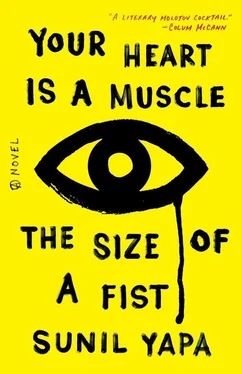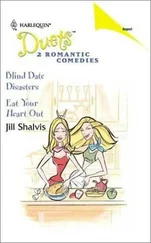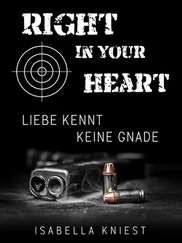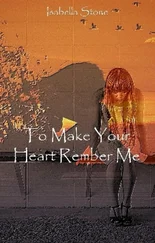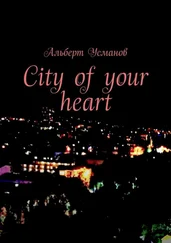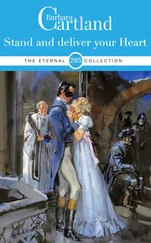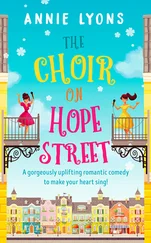“Bunch of kids! Jesus, what’s the matter with you?!”
Were they trained to react like that? To go faceless, not lift a foot while the crowd built and they waited for their orders? To King their shocked stillness said it all: like any cops in any American city, they were used to patrolling streets that they controlled. They owned the streets, and they enforced their laws. This was something else, and they knew it, and they were afraid. How to handle it? Their stillness said it all.
The cops were standing stiff and silent, all the tools of pain hanging at their waists — but what were they protecting? Nothing. They were on the wrong side of the intersection and plain and simple the police had fucked up. King couldn’t help smiling. The morning hadn’t even begun and already she and her friends — the various affinity groups scattered strategically throughout the city — had won the most important battle. They had all the territory they wanted, and the cops had none.
Had she thought yet about whether the police would allow that situation to remain as it was? How they might want to retake that intersection? What violence might lie in store?
Sure. But right now they owned the intersection and she had other things on her mind. Right now King was watching a mounted cop in the front line halfway down the block where things were a little looser. There was something about him which had caught her attention. He was a medium-sized white man, maybe thirty, unremarkable save for the birthmark (or burn?) ascending pink and smooth from the left side of his mouth, over his cheek, and into the whiteness of his hair beneath the riot helmet. Goddamn. Looked like a slab of raw steak. Visible from fifty feet away and King felt momentarily heartsick. She had a flash of recognition, a moment’s transportation to her childhood in western Pennsylvania, when she had been what, thirteen? fourteen? and her stepfather, who’d worked for a while as a short-order cook, because he didn’t have the temperament for coal, couldn’t stand the cage or the drop or the dust (least of all the darkness), and what else was there to do for money after the mills closed their doors and your education consisted mostly of knowing the difference between pounders and ponies. Well, this guy, her mom’s new husband or boyfriend or whatever, he had some sort of accident at the restaurant, something had happened when he was changing the oil in the deep-fryer, and he deep-fried his face.
When the gauze came off however many months later, the left side of his head looked like it had been pressed to a sheet of hot steel. His left ear reduced to a lump of melted wax.
A thirteen-year-old girl, what did she think about that? She didn’t think anything about that. She knew he deserved it.
This cop’s face looked nothing as bad as that but he was messing with a kid, a protester, and for King, really, the feeling was the same.
The kid in question — a young light-skinned black man with two braids and a badly mistreated olive green puffy jacket — was playing tug-of-war with the cop on the horse. A sort of middle-class-looking couple stood on the corner pointing to him. The backpack seemed to be the object in question, the point of dispute, and although the couple was angry — red-faced and gesturing — and the cop was clearly on their side, demanding the backpack, the kid hadn’t given it up, and hadn’t, it appeared to King from where she stood, given in to panic. His manner was both calm and strong and King admired that. He looked clear-eyed and intelligent, cloaked in a defiant sort of loneliness, which was nothing new to King, and she liked him in a way she didn’t need to define or articulate.
He looked totally alone out there, and now this cop was messing with him and King didn’t like that. She didn’t like that at all. She pulled the gas mask from around her neck and slung it underhand to Edie. Edie caught it by the strap and winked.
“Go get him, girl,” she said.
King crossed into the thirty-foot strip of pavement that separated the front line of the cops from the heaving surging crowd behind her. Into the no-man’s-land and down the street, heading for the cop. She looked for the officer who seemed in charge, a tanned older man in glasses who had been up in a cherry picker making unintelligible pronouncements on a megaphone: I don’t want to hurt you this… I don’t want to hurt you that… King saw the cherry picker parked down the street, behind some buses, its crane folded, but she didn’t see the Chief anywhere around.
The cops all watched her coming, all, that is, except the mounted asshole on the horse. He didn’t even notice her until she was beside his horse and the boy. Her body so close to the horse she could feel the heat coming off his heaving sides, the horse, and, ridiculous, yes she knew, she longed to reach out and stroke the soft hair, to comfort the animal with her touch.
“Hi!” she said loudly, neck craned backward to see the man’s mangled face.
Up close it was even worse, the skin angry and red, glistening in the drizzle as if it were made of plastic.
Suddenly his riot baton was out of its holster and pointed at her chest.
“Miss,” he said, “please return to your people.”
“Hey, that’s a little aggressive,” King said, still smiling, trying to keep her voice bright, “swiping at me like that. I just want to talk.”
But what she really wanted to do was touch that horse.
“Miss, return to your people.”
“Why don’t you leave this kid alone,” King said. “This is a peaceful protest.”
“Miss, I am not going to warn you again. Step back.”
She felt the other cops watching with interest and she took one more step forward reaching for the horse’s flank with one hand and with the other taking gentle hold of the backpack. The horse shied from her hand, lifting its feet high and moving a foot or two away. The cop let go of the backpack and suddenly she was staggering with the weight of the pack and feeling the first flush of triumph running hot in her veins.
“Hey!” His voice suddenly beyond angry. “I said that’s enough. Now step back.”
King knew she was antagonizing him. She should never have touched the horse. But she was beginning to feel a little amped — the familiar current of voltage as she got her first real taste of action. Once that juice got going in your veins, it was tough to stop. She should know. She was a student of conflict. She had been trained in the tactics, techniques, and philosophy of nonviolence. She was a trainer herself and she knew how to engage with police, with security officers, with enraged people of every stripe. When she had lived in the city, she used to go into the federal prisons — the maximum security blocks where the prisoners were on lockdown twenty-two hours out of twenty-four, the murderers and rapists, the friendly demented men who had taken a hammer to their neighbor’s skull in an argument over a dented car door.
She went into the federal prisons, this green-eyed woman with dreads to the small of her back, and they respected her. They talked to her.
No, ma’am.
Yes, ma’am.
No, ma’am, I should not have hit him with the hammer, ma’am.
It was a delicate art, conversation with incarcerated men, men who had killed. You had to push to get to the real. And you had to be real — you couldn’t go in and ask these guys to share their life stories and not share your own. That would be straight chickenshit. And that wasn’t her. So she shared her own stories. She wasn’t proud, if anything she was often ashamed of her own temper — the way she sometimes lost control. But she told them about it nonetheless; shared her fury and violence there in the concrete-floored room with wooden benches and a guard doing a crossword with his chair leaned on two legs against the locked door.
Читать дальше
